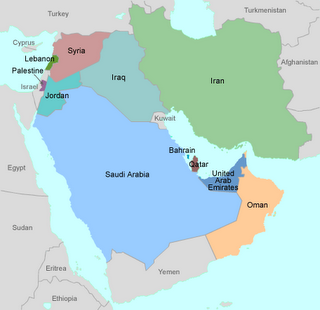 The cult of Bush has now found something new to be incensed about. Lieberman lost his bid to be re-elected as the Democratic Senator from Connecticut because his opponent, Ned Lamont, ran a campaign focused primarily on Lieberman's unquestioned support of George W. Bush's failed policies in Iraq. On most other issues, barely a ray of light can be seen between the two candidates' views.
The cult of Bush has now found something new to be incensed about. Lieberman lost his bid to be re-elected as the Democratic Senator from Connecticut because his opponent, Ned Lamont, ran a campaign focused primarily on Lieberman's unquestioned support of George W. Bush's failed policies in Iraq. On most other issues, barely a ray of light can be seen between the two candidates' views.I know why Connecticut Dems eschewed Joementum. After making out with the president in the House chamber, Lieberman derided Democrats who served as the loyal opposition to Bush, stating: "It is time for Democrats who distrust President Bush to acknowledge that he will be Commander-in-Chief for three more critical years, and that in matters of war we undermine Presidential credibility at our nation’s peril." Game, set, match. Mr. Magoo could have beaten this idiot in the primary. The start and conduct of the Iraq war was wrong: it has not helped the war on terror, it has not advanced US policy in the world, it has not weakened al Qaeda, and it has yet to benefit the Iraqis (save, of course, Ahmed Chalabi). And knuckleheads like Lieberman thought it prudent to refrain from any discourse just when our nation depended on it.
The unusually delusional Cal Thomas is the latest apologist for failed Bush policies to speak out. He appears to be in the catarrhal phase of his rabid disapproval of Connecticut Democrats who had the gall to exercise their franchise on Tuesday. Uncool Cal says:
“It is a loss for his party and for the country. It completes the capture of the Democratic Party by its Taliban wing....[Democrats] have now morphed into Taliban Democrats because they are willing to "kill" one of their own, if he does not conform to the narrow and rigid agenda of the party's kook fringe.”
Oh please. Ned Lamont is a capable successful citizen with views that are in lockstep with the national Democratic Party and Connecticut voters. Nobody killed Lieberman, he committed political suicide by supporting a failed president in a war that does not serve our national interests, and the voters for once were intelligent enough to recognize it. Is “Taliban” the latest epithet used for opponents, like Nazi has been used in the past.? If so, I'd like to present Grodge's Corollary to Godwin's Law, which would state that comparing a political party to the Taliban ends the argument, and you have lost. Furthermore, your party will likely lose at least one house of Congress in the coming election. Thomas continues:
“[Lieberman's] detractors, who brought him down in the primary with a one-issue, inexperienced and unqualified candidate, Ned Lamont, hate President Bush so much that their judgment has been distorted...The Taliban wing of the Democratic Party cannot countenance any "heretics" who do not toe their line.”
The Iraq war is just “one-issue” like Tiger Woods is just another duffer. Iraq is the defining catastrophe of the generation, and increasingly citizens are recognizing it as a war of choice that was the wrong choice. The defining characteristic of a democracy is that elected officials are to be held accountable for their failures, and who can blame Connecticut voters or refusing an entrenched pol like Lieberman who is cozying up to the corrupt party that has recently had a Republican mayor and governor who were forced to step down for malfeasance, namely soliciting 8 year-olds on the internet and handing lucrative state contracts to cronies. I also find it humorous that Cal Thomas takes issue with “incendiary rhetoric” from a bunch of left-wing bloggers, a few remarks sampled from probably thousands comments made about Lieberman, when his rhetoric about “Taliban Democrats” who issue “political fatwahs” against “heretics” is arguably more incendiary and coming from a supposedly respectable member of the punditocracy to boot.
My favorite line from Thomas' vituperative tirade, however, is his contention that Lamont supporters somehow damage the democratic process. He says: “For those who still believe not only in a strong two-party system, but also in compromise and conciliation in order to promote the general welfare and seek the common good, the Lieberman defeat strikes an especially harmful blow.”
What's in Cal's Kool-aid? When voters disagree with a candidate, they damage the two-party system? I heard nobody advocating a Stalinist or Maoist one-party system. Rather, I saw voters engaging in the responsible conduct of discourse and citizenship. Finally. At long last, maybe rays of morning sunshine are beginning to brighten the horizon after this long, 6 year, dark night of our collective national soul.
Cal Thomas takes the incongruous view of positively spinning Lieberman's loss by concluding that “GOP losses, if any, might not be as bad as predicted this November. Karl Rove could not have devised a more brilliant plan.” Ahh, yes... the old schoolyard canard of "meaning to do that", as in "Yeah, well I meant to hang that curve ball just to see how far you could hit it." On the contrary, if the rest of the nation follows suit and the 70% of Americans who think Iraq was a mistake finally vote the Bush sycophants out of office, we may get not only a Democratic Senate with subpoena power, but we may also get hearings and indictments that are long overdue.
Then maybe Mr. Thomas can stop libeling Lamont supporters as terrorists and start doing something constructive, like campaigning to get donors for Rove's, Cheney's, and Rummy's legal defense funds .

